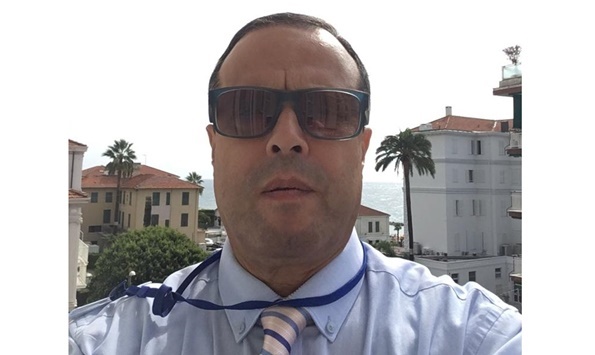A vibrant cultural atmosphere and diverse events attracted visitors to the 34th Doha International Book Fair (DIBF) on its third day. Held this year at the Doha Exhibition and Convention Center under the theme "From Engraving to Writing," the fair runs until May 17.
The third day of the fair witnessed a large turnout of visitors, notably families who brought their children to select appropriate books and engage with the cultural atmosphere surrounding the fair.
As part of the cultural programme accompanying the fair, a series of intellectual seminars, literary evenings, and public lectures were held, discussing diverse and important topics in the fields of literature, heritage and the publishing industry.
Qatari, Arab, and international publishing houses also showcase a wide range of new publications and specialised books covering literature, history, philosophy, children's books, science, technology, and more. The exhibition attracts readers of all ages and interests, amidst a unique marketing and cultural atmosphere.
On the occasion of hosting the State of Palestine as the guest of honour during the 34th edition of the DIBF, Imad Abdullah Hamdan, Minister of Culture of the State of Palestine, participated in a symposium on the reality of Palestinian culture. He pointed out that despite the war of extermination that Palestine is facing in various regions, whether in the Gaza Strip or elsewhere, the Palestinian scene is resilient. "We see writers writing, poets composing poems, artists painting or sculpting sculptures, and musicians composing melodies of revolution and return."
He considered this to be the cultural landscape that Palestine is trying to cling to and take root in, demonstrating the extent of Palestinians' attachment to their land, history, and culture.
The Palestinian minister emphasised that Palestinian culture is not a luxury, but rather a weapon of resistance, saying: “Today, we are witnessing a cultural genocide in Gaza, in addition to the genocide taking place in the Strip. Our greatest losses, of course, are the human losses, as we have lost hundreds of intellectuals who were martyred in this war and may have been displaced from the Strip. We also speak of the wounded, the cultural centers, and the archaeological and heritage sites that were destroyed in Gaza. There are hundreds of sites that were destroyed, which are historical archaeological sites that cannot be recovered. However, despite this, we say: Culture in Gaza will rise again, and the cultural scene in the Gaza Strip will return to the same as in the rest of Palestine.”
He explained that working in the Gaza Strip is extremely difficult under the wartime conditions. However, despite this, novels have been published by writers and authors from within Gaza, recounting their testimonies of the horrors of war they experienced, even though some of them were martyred even after their writings were published.
Speaking to Gulf Times, Eissa Abdullah, the executive officer of Rosa Publishing House, said: “This year, we have 15 new publications, ranging from studies and research, to reflections, prose and poetry, children's books, and novels. This year, all of the authors are Qatari. We value, as much as possible, and support Qatari authors, especially newcomers who have fine writing skills. We try to give them the opportunity to publish, even if the book needs some editing, proofreading, or rewriting. As long as they love this field, we give them the initial push. "
Abdullah added: “Among the Rosa Publishing House's most prominent publications this year are studies and research, for example, by Qatari authors such as Aisha Ahmed Al-Ishaq's book in English 'Strategy Planning in Developing Nations', Sheikh Nawaf bin Mubarak al-Thani's 'Coffee with a Little Fascism,' and Dr Fadala al-Fadala's 'Auditing and Internal Control and Their Role in Performance Control.'
"Among our publications this year we encouraged two books by Palestinian children, Ramadan Mahmoud Abu Jazar, and a novel titled 'Displaced' by Ibrahim Abdel Hadi. These children were among the refugees receiving treatment in Qatar and had a story they wanted to tell, so we gave them the opportunity, they deserve it. They are from Palestine and they are our brothers."
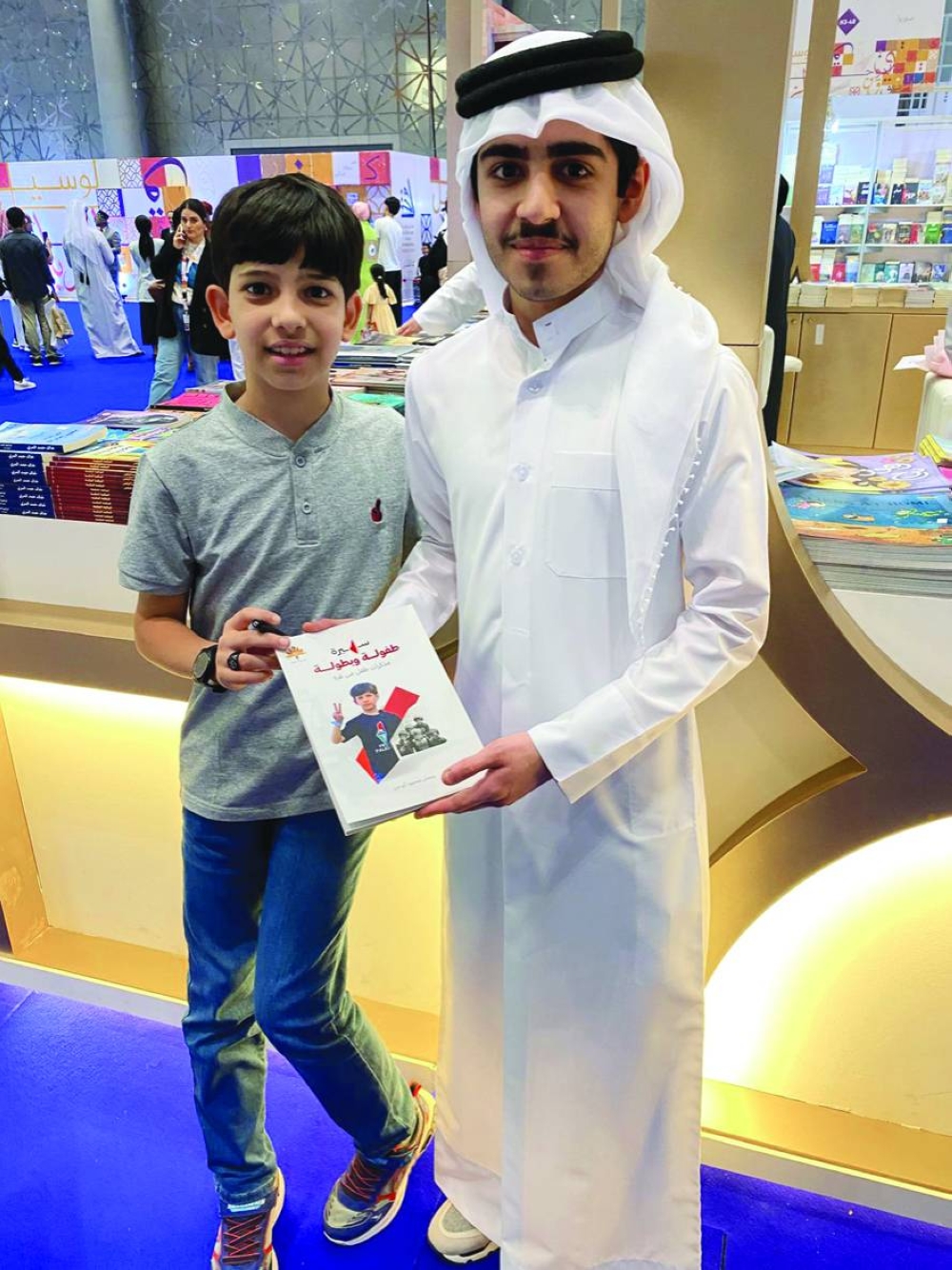
Ramadhan Mahmoud Abu Jaza dedicated his novel to a young Qatari reader. PICTURE: Tawfik Lamari
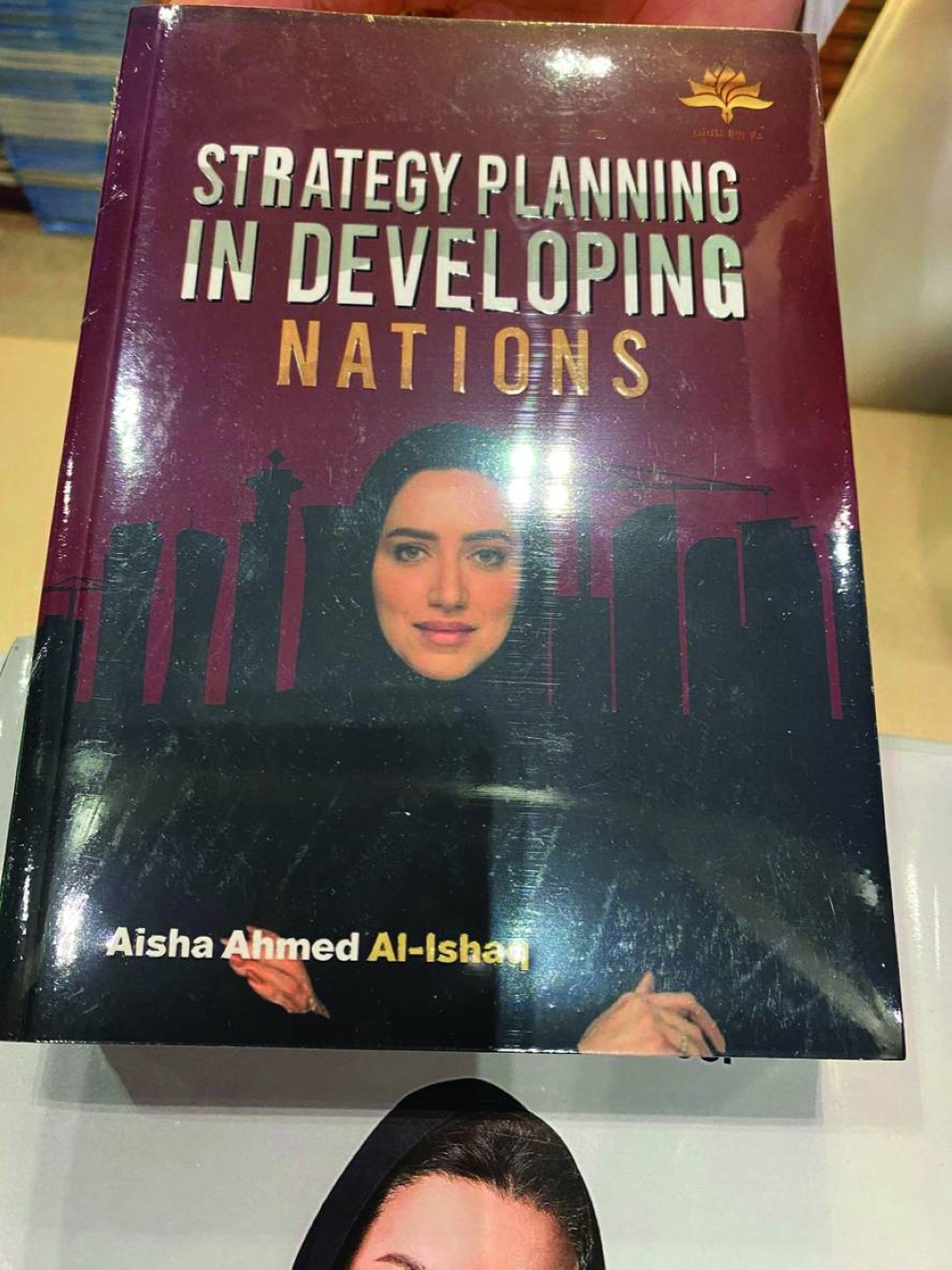
Aisha Ahmad al-Ishaq's book cover page
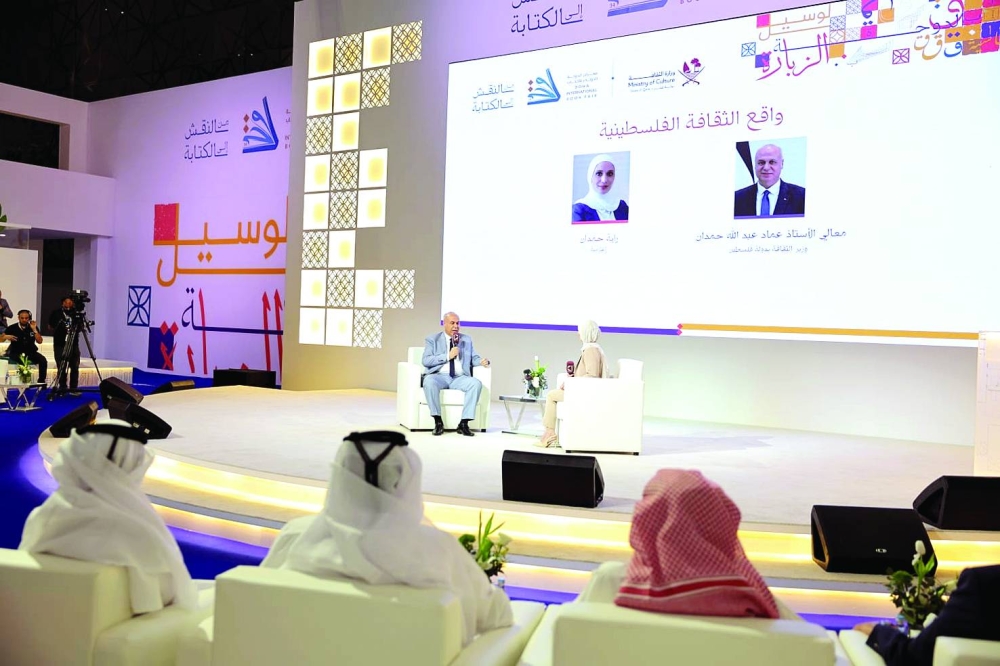
Palestinian Minister of Culture Imad Abdullah Hamdan during the symposium with a journalist, audience.
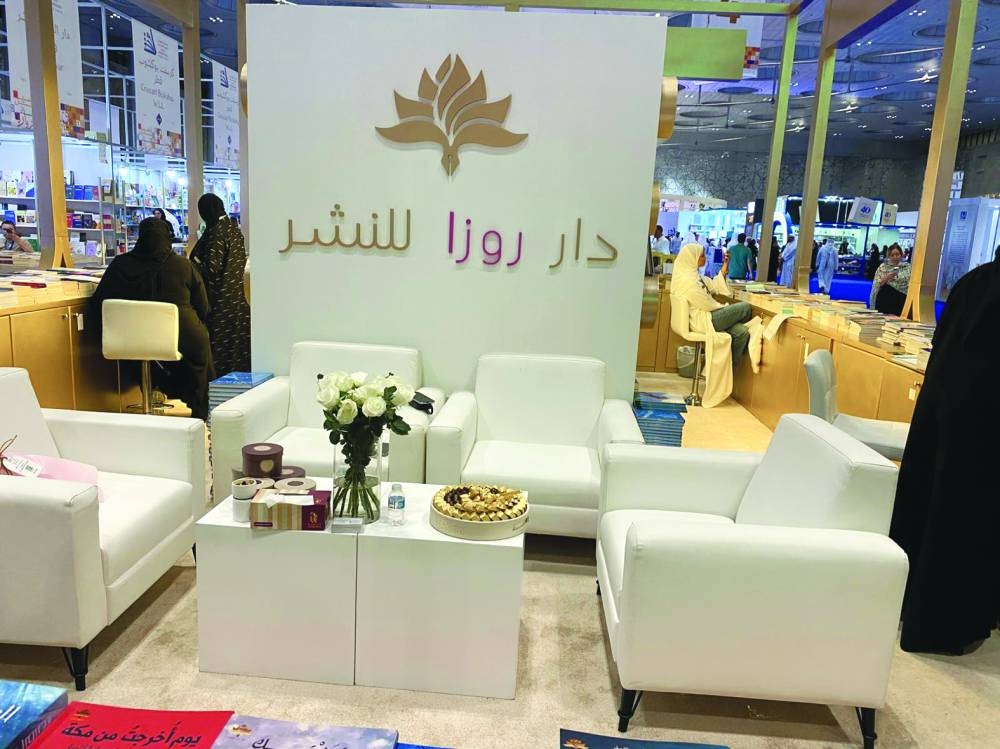
Rosa Publishing House stall

